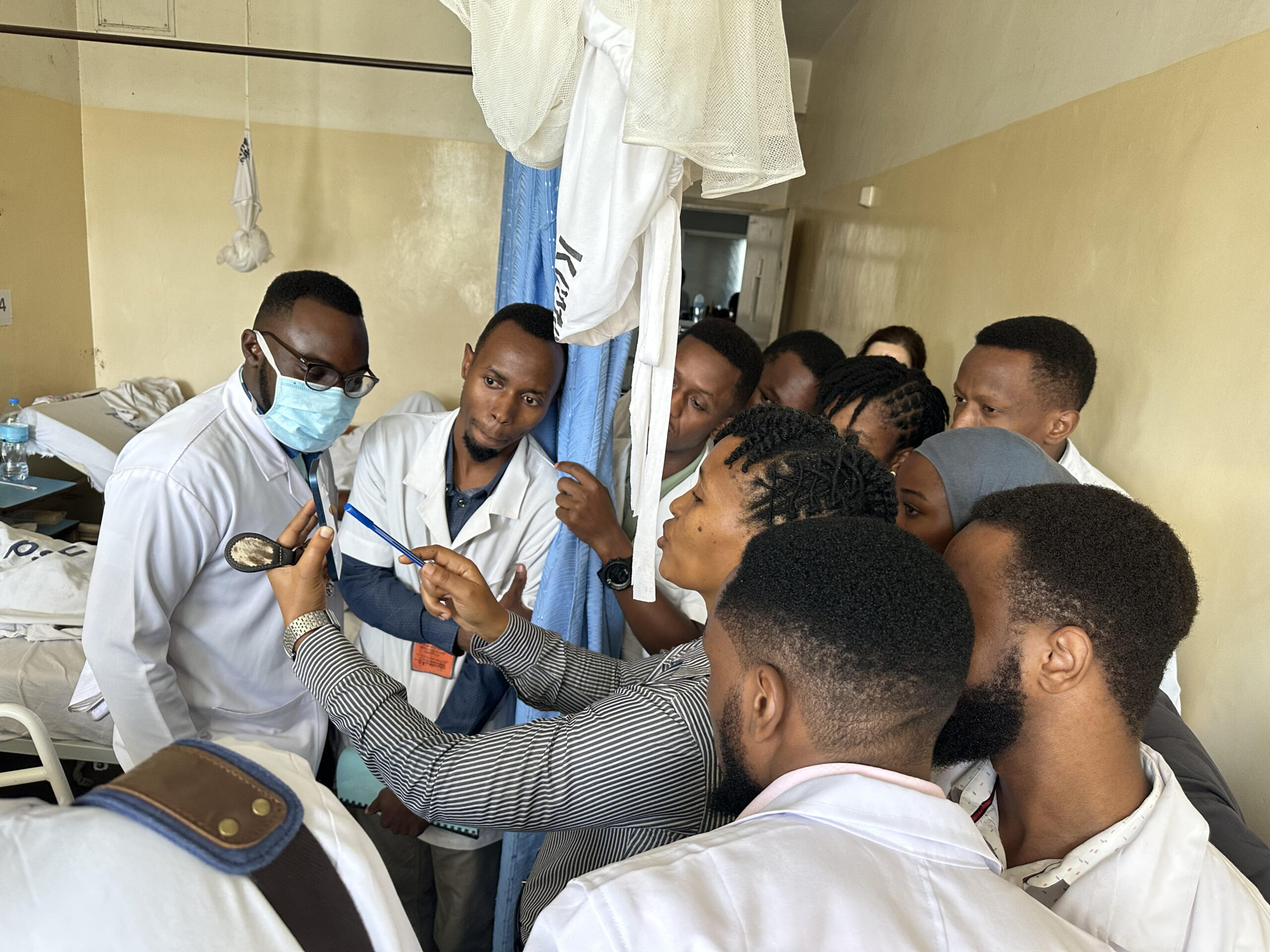Pituitary Center
Support research to improve pituitary tumor diagnosis and treatment.
Support Pituitary Research and Treatment
Although the pituitary gland is only the size of a pea, it produces hormones that regulate many of the body’s critical functions. As such, pituitary disorders can wreak havoc on the lives of patients. The symptoms associated with pituitary disorders, including weight gain, extreme fatigue, forgetfulness, mood swings, and high blood pressure, can be extremely debilitating and severely impact day-to-day life. Moreover, pituitary disorders often are misdiagnosed, and patients can go years without receiving a correct diagnosis.
Barrow has the most experienced pituitary center in the Southwest and the only one co-led by a neurosurgeon and neuro-endocrinologist. Its world-class team of pituitary specialists are committed to raising awareness about pituitary disorders and tumors in order to drastically improve patient outcomes.
Your Donations Support Life-Changing Pituitary Research
Research, both clinical and translational, is critical in improving pituitary tumor diagnosis, treatment, and management. Thanks to a generous endowment from Caroline Hoeye, Barrow established the Caroline Hoeye Pituitary Research Program, allowing its team of pituitary specialists to advance groundbreaking research into pituitary tumors, facilitating the discovery of new medicines to treat these challenging conditions, and educating future generations of pituitary specialists.
Caroline Hoeye Pituitary Research Program
Tumors-In-A-Dish
A significant study in this program focuses on developing more effective therapies for Cushing’s disease. Barrow Pituitary Center co-directors Andrew Little, MD, and Kevin Yuen, MD, collaborated with Yana Zavros, PhD, at the University of Arizona College of Medicine, to develop an organoid model that replicates much of the cellular complexity of a Cushing’s disease-causing pituitary tumor. These “tumors-in-a-dish” have the potential to lead to more effective and personalized treatment for pituitary patients.
Clinical Trials
These trials test next-generation therapies for pituitary patients. For example, one study examines a new oral drug for patients with Cushing’s disease that works to block the effects of cortisol at the receptor level.
RAPID Research Consortium
Collaboration, both within the Barrow Pituitary Center and with other centers, is an integral part of its mission to produce the best possible patient outcomes. As such, it developed the Registry for Adenomas of the Pituitary and Related Disorders (RAPID) Research Consortium is a collaborative, multicenter research consortium focused on quality improvement efforts and clinical research for pituitary tumors.
Your Support, Their Stories
Grateful Barrow patients share how their lives changed after receiving treatment for their pituitary disorder.

Dr. Little saved my life in every way possible. My whole world is now open to endless possibilities.
[Name Title]
Dr. Zavros suffered for years with debilitating symptoms of Cushing’s disease, which is most commonly caused by a tumor on the pituitary gland in the brain.

RAPID Research Consortium Advancements
Study Enrollment
New Disease Modules
Nationwide Partner Sites
Scientific Publications
Discover More Programs
At Barrow Neurological Foundation, your donation is crucial in supporting three key areas: advanced patient care, curative research, and education for the next generation of neuroscientists. Learn more about how your donation impacts each of the areas we treat.
Support groundbreaking research and clinical trials to give ALS patients a better quality of life.
Help Barrow achieve its mission of transforming Alzheimer’s from a devastating diagnosis to a manageable, chronic condition.
Support Barrow scientists in developing lifesaving treatments for aneurysm and AVM patients.
Help Barrow provide patients from all walks of life with exceptional concussion and TBI research, treatment and care
Help us improve access to neurological care in the developing world through world-class education and training.
Support the Ivy Brain Tumor Center’s mission to find a cure for brain cancer.






